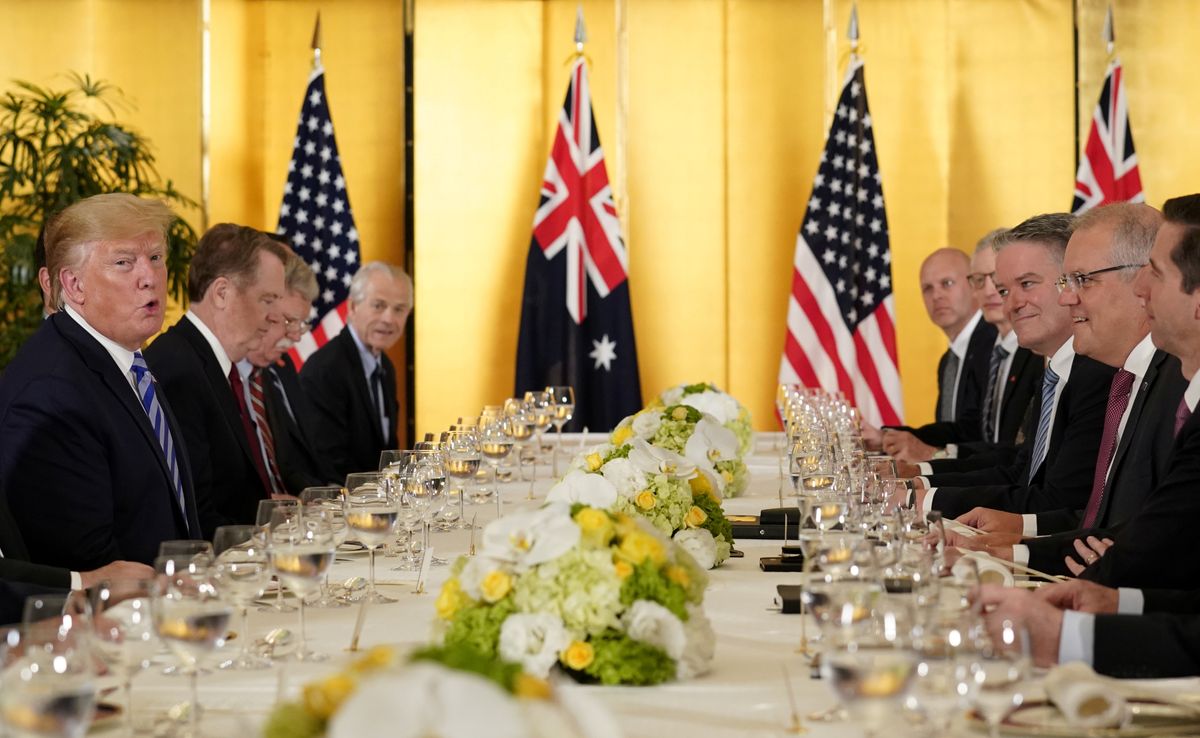World leaders have gathered in Osaka, Japan for the latest G20 summit meeting. Where did the G20 come from, what purpose does it serve, and why should anyone care about it?
What's the G20? Thirty years ago, the G7 group of industrialized nations—the United States, Japan, Britain, France, Germany, Italy, and Canada—accounted for almost 70 percent of the global economy, giving them hefty international influence. But by 2008, that number had fallen to just over 50%, and when the global financial crisis hit, it was clear that big new players like China, India, and others had to be included in talks over what to do about it.
Enter the G20, which includes the G7 plus China, India, Brazil, Indonesia, Saudi Arabia, Turkey, Argentina, Australia, South Korea, South Africa, Russia, Mexico, and a representative of the European Union. This group now accounts for 80% of global GDP and two-thirds of the world's population.
What's the G20 good for? The G20 produced a unified response to the financial crisis, but only because it threatened all of these countries at the same time. Since then, the group hasn't accomplished much of anything that demands compromise and shared sacrifice. It's hard to get 20 negotiators to agree on anything, but particularly when key players like China, Russia, and Saudi Arabia don't have the same political values as the US, the Europeans, and Japan.
So does this summit matter? Yes. Even if the larger G20 summit meeting accomplishes little else, the event will serve one very important purpose: it will give world leaders a chance to meet on the sidelines to talk through important questions in less formal settings. Not surprisingly, there are lots of people who want face-time with Donald Trump.
The main event: The most anticipated moment of the Osaka summit is the expected Saturday meeting between Trump and China's President Xi Jinping. The US-China trade war continues, and finance officials and economists warn that it's beginning to undermine the entire global economy.
US Treasury Secretary Steve Mnuchin said this week that the two sides are 90% of the way to a deal, but China reportedly has a list of specific demands -- including the lifting of US sanctions on Chinese tech giant Huawei -- that they want met before anybody signs anything. Trump hasn't yet indicated how he feels about that.
In short, the world is watching and hoping for a trade war truce, if not a deal to end it altogether. We'll find out over the weekend whether things are moving in that direction.
The under card: That's not Trump's only noteworthy meeting. In the past few hours he's met with…
- Russia's President Vladimir Putin to chat about things that are none of your business
- Germany's Chancellor Angela Merkel to talk about trade, energy security, Iran, and Trump's view that Germany is free-riding on US security guarantees…
- Japan's Prime Minister Shinzo Abe to discuss a US-Japan trade agreement that Abe doesn't really want and Trump's view that the US does more for Japan than Japan does for the US….
- India's Prime Minister Narendra Modi to discuss Indian tariffs on US products…
- Abe and Modi in a trilateral meeting to talk about strengthening security ties among democracies in Asia in response to China's expanding influence…
- Saudi Arabia's Crown Prince Mohammad bin Salman over breakfast to talk about Iran and global oil prices, but probably not the murder of journalist Jamal Khashoggi…
- Turkey's President Recep Erdogan to talk about trade and Turkey's plan to buy Russian-made missiles, which would trigger US sanctions…
Bottom line: You can ignore the choreographed group photos and empty joint statements, but the private meetings behind closed doors are genuinely important. That alone makes the G20 worth watching.






